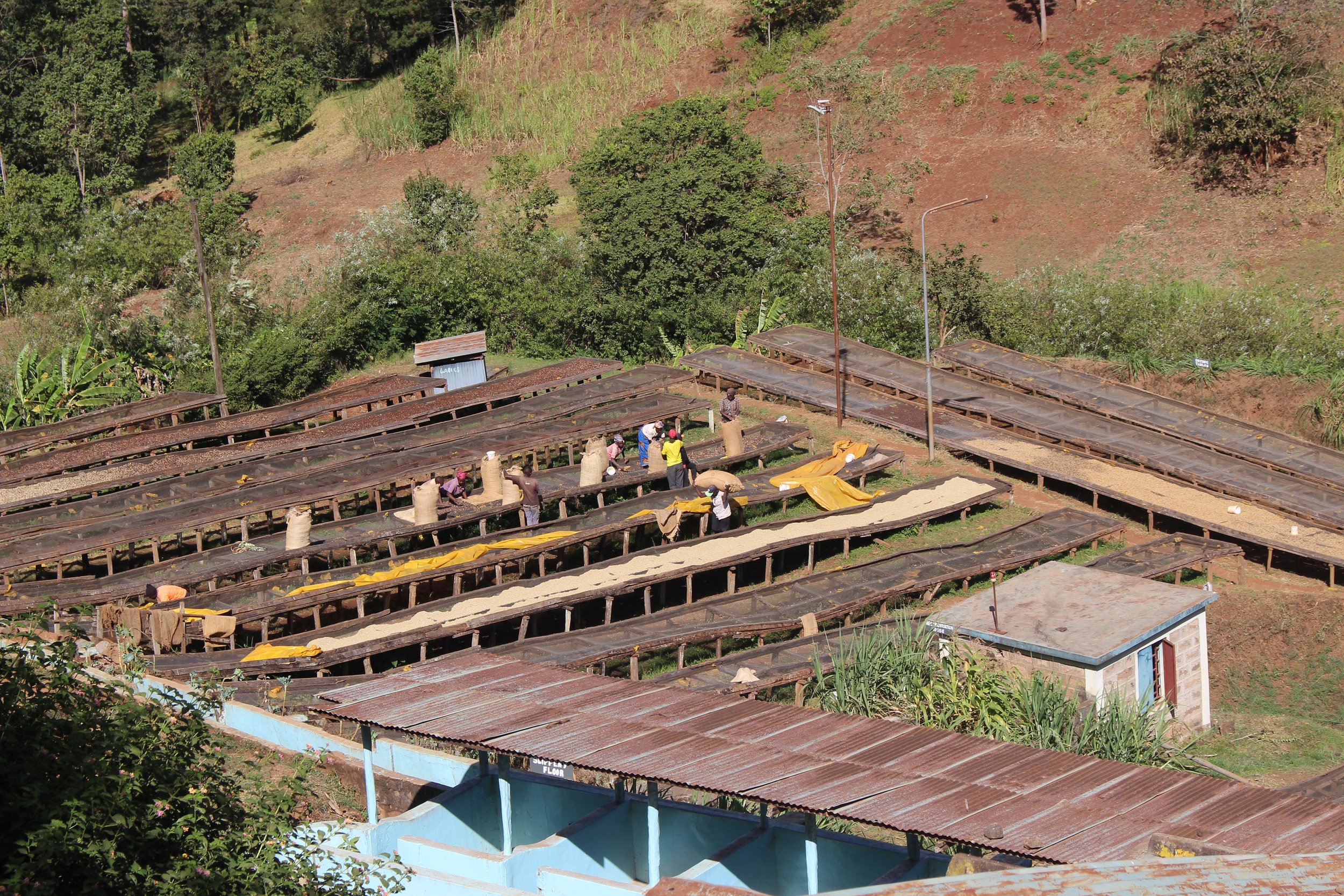Feature filter : Gititu AA | Kenya
Key Origin Info:
Producer: Small-holders farmers of the Gititu Cooperative Society
Processed at: Gititu Factory
Region: Kiambu
Altitude: 1550 masl
Variety: SL28 & SL34
Process: Washed | Hand-picked, de-pulped, fermented and washed, soaked in clean water and dried on raised beds
Exporter: Gititu Farmers Coop Society | Importer: Falcon Speciality
Cup profile: Juicy body, elderflower & rhubarb
More about Gititu from our importing partner Falcon Speciality:
Gititu Farmers Cooperative Society (FCS) is the proud owner and operator of Gititu Factory, located in Gitunduri, Kiambu. The name "Gititu" originates from the Kikuyu language, meaning "big forest," which pays homage to the once-abundant forests in the Kiambu region.
With its establishment in 1954, Gititu FCS holds the distinction of being one of the oldest cooperative societies in Kiambu. The construction of Gititu Factory followed in 1957. Presently, the FCS owns and operates a total of eight factories, serving approximately 5,000 dedicated members. The long-standing success of Gititu Factory can be attributed to the FCS's unwavering commitment to transparency and communication. In an effort to involve its members in the coffee-selling process, Gititu FCS extends an invitation for them to attend auctions at the Nairobi Coffee Exchange. This opportunity allows members to witness the sale of their coffees firsthand and gain a deeper understanding of the selling process.
Gititu Factory relies on the diligent efforts of smallholder farmers who selectively handpick only ripe cherries, ensuring the delivery of top-quality produce. Upon intake at the factory, the Cherry Clerk oversees a meticulous visual sorting and floating process, accepting only dense and fully ripe cherries.
Following intake, the cherries undergo pulping and a fermentation period of approximately 48 hours. After fermentation, the coffee is thoroughly washed with clean water and meticulously graded in dedicated grading channels. The parchment, or protective layer, is then spread out on raised beds for drying. To ensure an even drying process, workers diligently rake the parchment at regular intervals. During the hottest hours of the day, the drying parchment is thoughtfully covered to maintain a slow and uniform drying process. Similarly, the parchment is sheltered from moisture during night time. This meticulous drying process typically spans 14 to 21 days, allowing the parchment to reach the ideal moisture content.
As with all our Kenyan offerings, this lot has been sourced with the help of our key importing partner Falcon Speciality. Falcon's approach to sourcing in Kenya optimises purchasing through the traditional auction system with the help of a local representative and make the supply chain more efficient in the short term. The longer term goal is to work more directly with farmers associations and cooperatives and bypass the auction altogether, further improving traceability and value for producers as well as us as roasters.
A little bit of further insight into coffee sourcing in Kenya and its future from our importing partner Falcon Speciality
The vast majority of the coffee bought and sold in Kenya is traded through the national auction system, where marketing agents enter cooperatives' and estates’ coffee and traders come to bid. The main buyers from this auction system are large multinationals, who then offer the lots to importers and roasters. Unfortunately, this has been the only way to purchase Kenyan coffee for a long time and we’ve become frustrated with the lack of transparency, poor service and price volatility. In the last couple of years we have started buying directly from the auction using a local Kenyan company, who bid on the coffee on our behalf, after we have cupped through auction samples filtered by a local cupper. This was not only a conscious decision to support local, Kenyan businesses, but also to make the supply chain more efficient.


